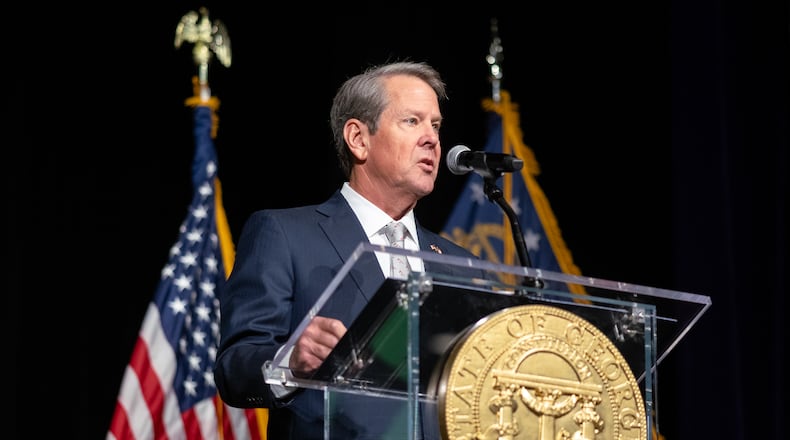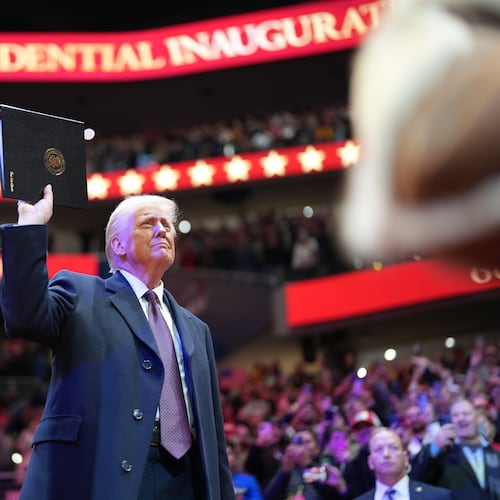A federal judge Monday was skeptical of a Democratic challenge to Georgia law that allows Gov. Brian Kemp and a few other elected officials to raise unlimited amounts of campaign cash.
At a hearing in U.S. District Court in Atlanta, the Democratic Party of Georgia argued the law is unconstitutional. They say it gives the governor and a few incumbent officials an unfair advantage against other candidates, who face limits on the amounts they can receive.
“In large part, this (law) was about incumbent protection,” attorney Jen Jordan, herself a former senator, told U.S. District Judge Mark Cohen.
Cohen acknowledged that may be so as he quizzed Jordan about her case. But he said a law that protects incumbents is not necessarily unconstitutional. And he expressed doubt whether the Democratic Party had standing to bring a lawsuit based on what Cohen suggested was hypothetical future harm to Democratic candidates.
“There are a lot of what I’d call bad laws,” the judge said at Monday’s hearing. “I can’t rewrite bad laws. The only thing I can do is call them out when they’re unconstitutional.”
Under Georgia law, candidates for statewide office can raise up to $8,400 from individual donors for both the primary and general elections, plus an additional $4,800 for a primary runoff.
But a 2021 law allows the governor, lieutenant governor and the Democratic and Republican caucus chairs in both houses of the General Assembly to create “leadership committees” that can bypass those limits. They can also raise money during the legislative session, which other candidates can’t do.
Candidates for governor and lieutenant governor are allowed to create leadership committees once they’ve secured their party’s nomination. But incumbents don’t have to wait until they receive the nomination to raise unlimited cash — giving them a big head start on their opponents.
Kemp, for example, continues to raise millions of dollars through his leadership committee, though he is term-limited and cannot seek reelection. He can use the money to support any candidate or for a potential run for U.S. Senate in 2026.
The Democratic Party of Georgia recently filed a lawsuit to overturn the law. In court documents and at Monday’s hearing, Jordan argued the law violates the Democratic Party’s rights to free speech and equal protection by skewing the campaign finance playing field against its candidates.
She cited a list of Democratic legislative candidates that Kemp has targeted in the upcoming legislative races, plus a list of Republican incumbents the governor plans to aid with campaign cash. She said the Democrats in those races are subject to contributions limits, while Kemp is not.
Kemp’s attorneys say the Democrats’ argument fails on many counts. Among other things, they note that Democratic candidates can seek funding from their party leaders’ committees, just as Republicans can.
On Monday, Kemp attorney Gene Schaerr also argued the governor isn’t the correct party to sue because he plays no role in enforcing the campaign finance law. And he said the Democrats waited too long to file a valid claim.
Cohen expressed doubts that the Democrats had a valid case — even as he appeared to criticize the law. He called it a “workaround” campaign finance limits that benefits both parties, but he added: “I can’t change laws that smell bad.”
Cohen said he plans to issue a ruling by early next week.
Credit: Christina Matacotta for the AJC
Credit: Christina Matacotta for the AJC
About the Author
Keep Reading
The Latest
Featured





